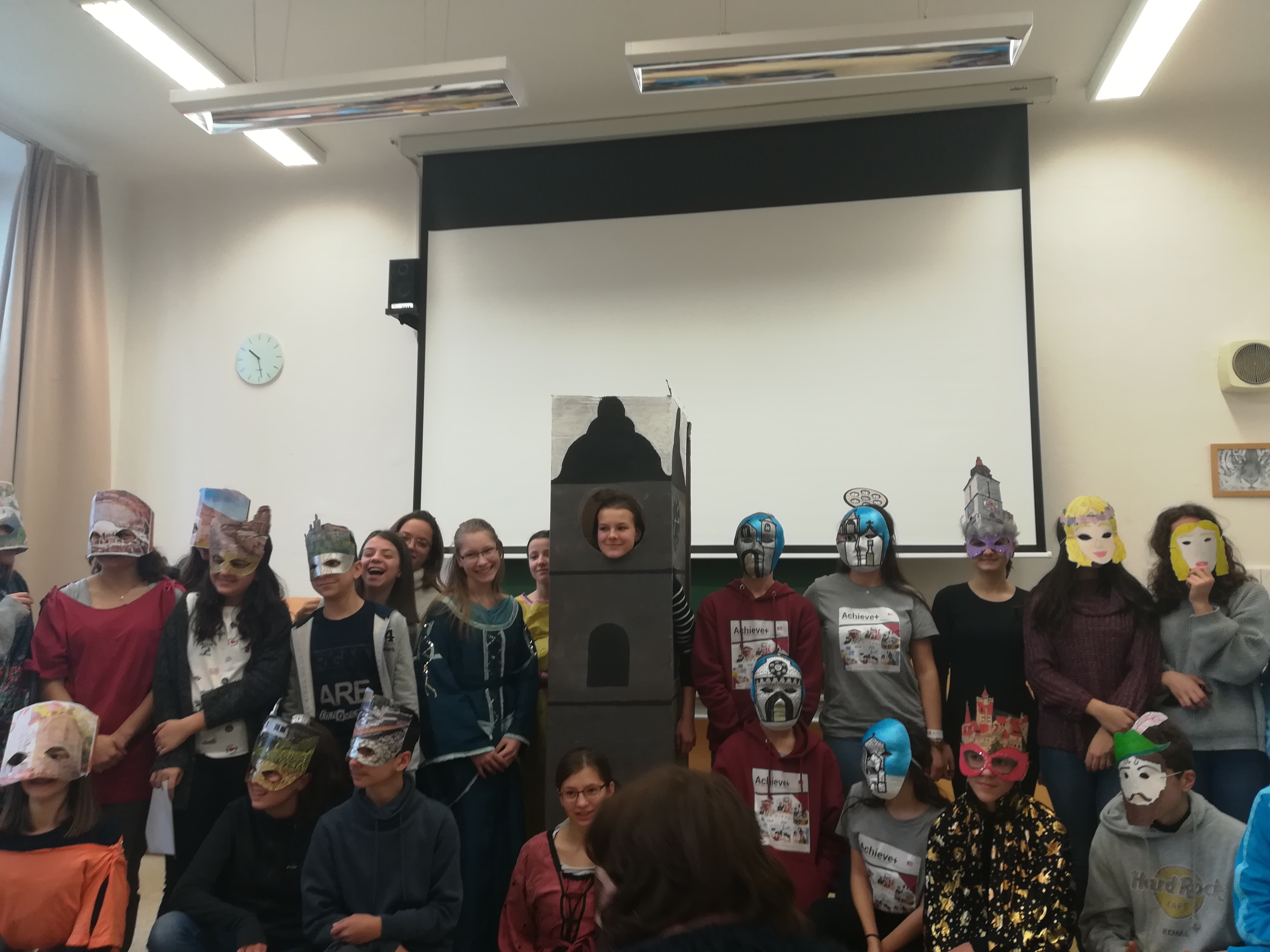
Topic(s) addressed
- The social and educational value of European heritage with a special focus on European architectural diversity
- Historical personalities
- Different cultures, tolerance and respect for other peoples and cultures
- Sense of belonging to a common Europe; - Social, cultural and linguistic diversity
Target groups
- 3000 students aged 11-15 (including students with learning difficulties, social and economic obstacles and immigrants)
- 300 teachers.
Methodologies
- Linking different subjects facilitated cross-curricular lessons.
- A wide variety of skills was approached: logical thinking and problem solving, critical and creative thinking, information and communication, artistic and aesthetic sensitivity, language and text understanding.
- Several activities were started at school and concluded at home.
- By creating and playing IT games (web 2.0 tools) and using the eTwinning pupils learnt in an informal way.
- All field trips were meant for on-site learning and became meaningful experiences.
- Most activities were carried out in collaboration with different stakeholders.
- Students participated actively and monitored their learning process themselves.
Environments
- Teachers developed, used and tested new learning scenarios, and Educational IT Games that promote the use of cultural heritage in learning environments.
- The cross-curricular learning was implemented to improve the learning experience and educational success.
- The social and educational value of European cultural heritage was highlighted.
- Promoting the acquisition of skills and competencies and education open to innovation in a digital era
- Highlighting the importance of cooperation with parents, local governments, libraries, and different local and national institutions
Teachers
- Teachers attended training ( in Short Join Staff Training Events, participating in CLIL and Flexible Curriculum activities) on how to create learning scenarios using cultural heritage, testing them and integrating them into their classrooms.
- They provided project activities at partners’ schools and took part in discussions, interviews and questionnaires.
- Teachers exchanged good practices by participating in workshops.
Impact
- The project was implemented and disseminated using many ways, for instance: Achieve+ Days, project exhibitions and project workshops.
- It reached a large target group including teachers and students also from other schools and workers from different institutions, parents, local governments, libraries and Route of Romanesque Centre.
- Dissemination means included also International Conference Achieve+, meetings, training, a school newspaper, press and school websites articles, a radio broadcast and a TV interview.
- Students, teachers and other participants got not only knowledge about cultural and architectural heritage diversity but also gained social and intercultural competencies.
- They learnt tolerance of other cultures, religions and languages.
- participants improved also their English and IT skills.
- Reference
- 2018-1-PT01-KA229-047257
- Project locations
- Portugal
- Project category
- Secondary education
- Project year
- 2022
Stakeholders
Coordinators
Agrupamento de Escolas de Idães
- Address
- Portugal
Gymnazium, Ceske Budejovice, Jirovcova 8
- Address
- Czechia
4o Gymnasio Komotinis
- Address
- Greece
Istituto Comprensivo Camera
- Address
- Italy
Scoala Gimnaziala Mihail Sadoveanu Braila
- Address
- Romania
Naiden Gerov
- Address
- Bulgaria
